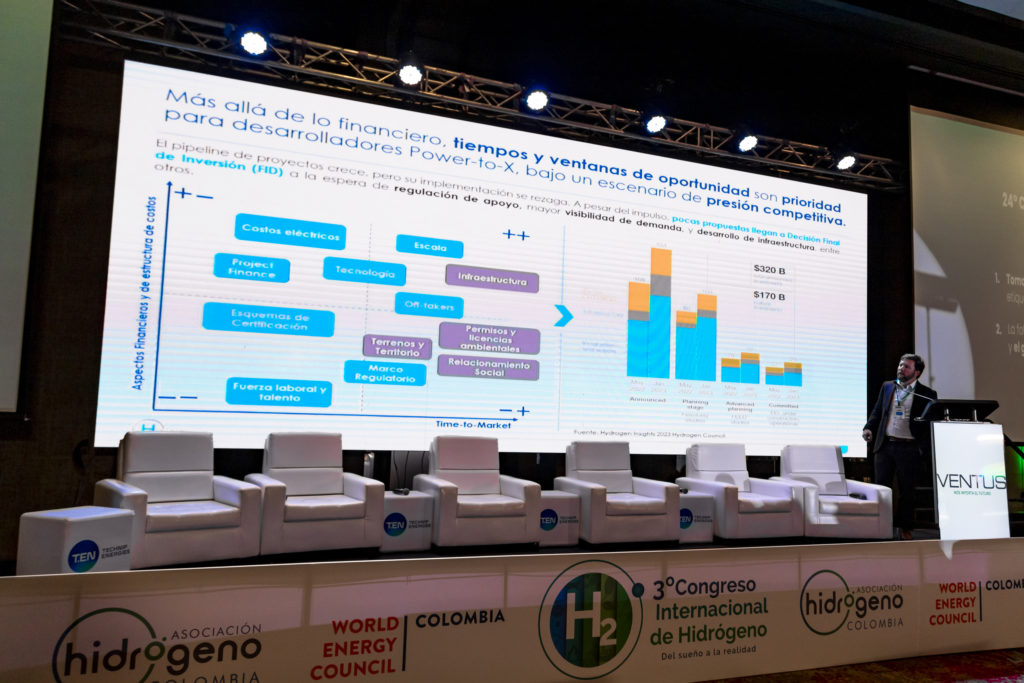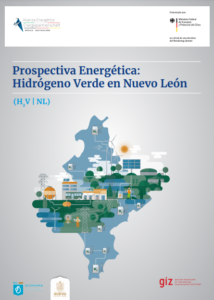The most recent edition of the 3rd International Hydrogen Congress, organized by Hidrógeno Colombia, took place in Bogotá on April 9, 10, and 11. This event was attended by leading experts from the global energy and hydrogen markets and focused on discussions about the hydrogen market in Colombia and on the international scene.

3° International Hydrogen Congress Colombia – Source: Hidrógeno Colombia
During these discussions, Hinicio presented “Overcoming the Prisoner’s Dilemma: Effective Cooperation for Shared Hydrogen Infrastructure.” This presentation provided clarity on the importance, challenges, and solutions related to shared hydrogen infrastructures. Today, with more than 600 hydrogen projects announced globally, it is expected that these will start to be organized around hubs due to their geographical proximity. A hydrogen hub is an integrated ecosystem in a specific location that, due to its industrial and/or port character, has a foundational infrastructure capable for the production, storage, distribution, and use of low-emission hydrogen and its derivatives.
The viability of a hydrogen hub depends on the wide availability of low-cost renewable energy, adequate infrastructure for handling hydrogen and its derivatives, and strong local or industrial demand to ensure a market for the products. In this context, the competitiveness of a hub is influenced, among other factors, by an infrastructure that can reduce costs and accelerate the start-up of hydrogen projects. For this reason, given the need for efficient infrastructure, the opportunity arises to implement hydrogen common-use infrastructures, commonly referred to as CUIs.
According to our experts, hydrogen common-use infrastructures would allow:
- Reduction of environmental, social, and visual pollution impacts because projects would share structural elements used to produce, transport, and store hydrogen.
- Reduction of the procedures and studies related to the development and implementation of hydrogen projects.
- Optimization of project operations.
- Facilitation of the development of new projects by reducing barriers to entry.

3° International Hydrogen Congress Colombia – Source: Hinicio
Efficiency and quality in the development of hydrogen sharing infrastructure are crucial to ensuring the competitiveness of a hydrogen hub. It is essential that these infrastructures exploit their economic, operational, and environmental advantages.
Would you like to know more about CUIs? Are you interested in learning what factors need to be considered to develop and implement these hydrogen common-use infrastructures?







